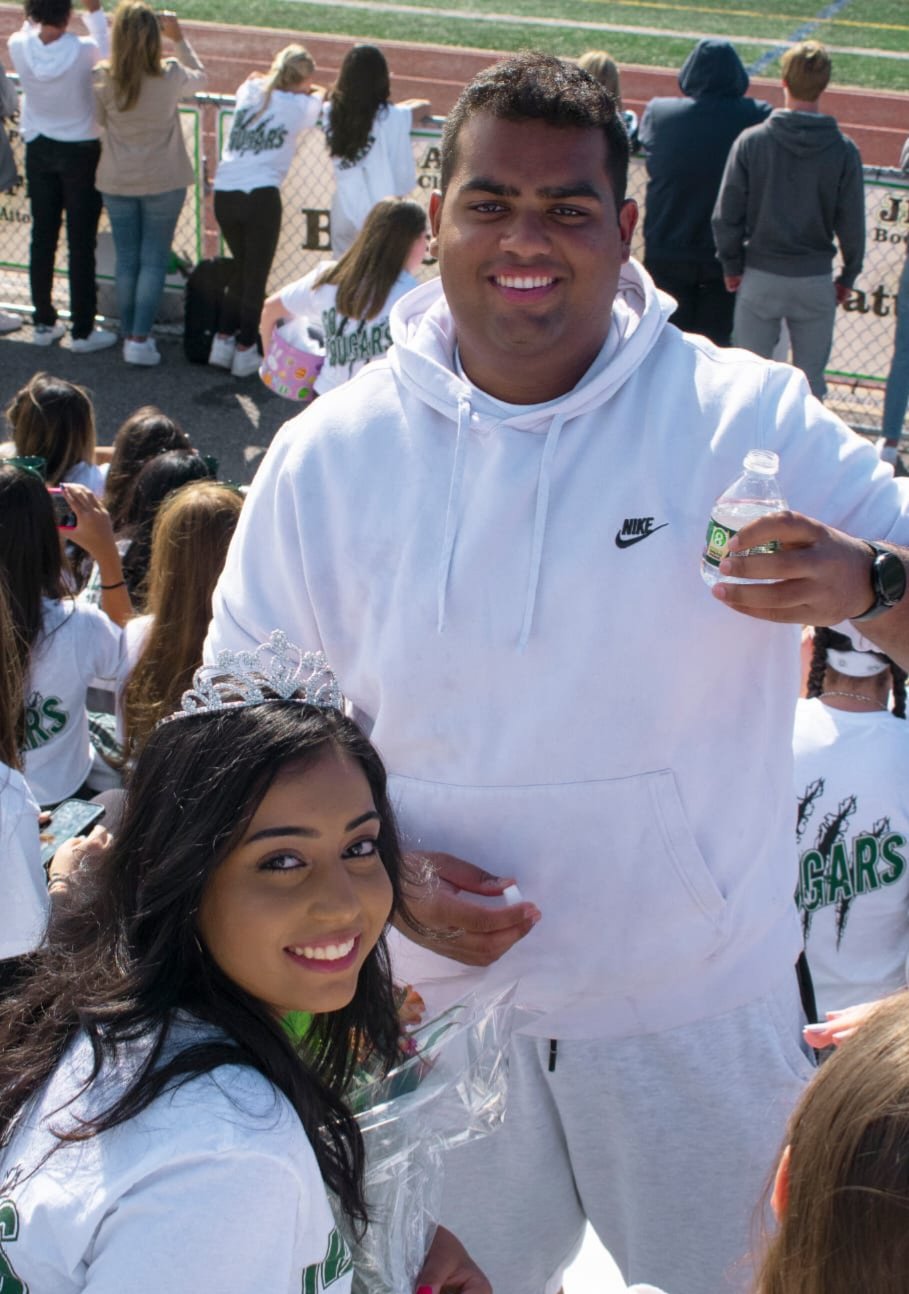Twins tackle Advanced Science Research at Kennedy High
Sarina and Sameer Khan both know what it’s like to have a lot on their plates.
The 17-year-old twins from Merrick are involved in many clubs and activities at John F. Kennedy High School in Bellmore, and have different paths they hope to follow after graduation. But they do have one thing in common: Both are students in the school’s Advanced Science Research program, and are in the midst of finalizing their projects, readying them for submission to the Society for Science Talent Search Competition, sponsored by the pharmaceutical company Regeneron.
Taking part in ASR is no easy feat, the program’s teacher, Barbi Frank, explained to the Herald earlier this year. Kennedy students apply to it as freshman, and applications are based on essays, grades and teacher recommendations.
Sarina and Sameer said that as their deadline approaches, nearly any free time they have at school is dedicated to completing their applications — but despite all the hard work and grit it takes to make it through ASR, neither would change their experience in any way.
Sarina’s project
Sarina settled on her project, “The Impact of Psychological Stressors on Immigrants’ Well-Being,” after bouncing back and forth among several possibilities.
“I started off with sociology and I’m ending with sociology, but during my sophomore year, I was going through doing research in chemistry,” she said, “and I ended up sticking with immigration psychology.
“It’s a lot of trial and error — you send a lot of emails out to mentors, potential mentors, and you have to work around their schedule, along with your own, to make ends meet with your research.”
Sarina was motivated to study the topic based on her father’s immigration struggles, which her family experienced as well in her youth. The family was forced to move to Guyana, and later England for three years.
“It was an unfortunate opportunity for my family, because it allowed us to see the world from different perspectives,” she said, “and also understand how the current political climate associated with immigration is truly detrimental to those affected.”
Working with her mentor, Dr. Wahiba Abu-Ras, a professor at Adelphi University — who had her own immigration challenges — Sarina administered a survey to 283 people from across the country, on topics including whether they had access to resources like physical and mental health care, among other things.
“It was definitely a touchy topic,” she said. “It’s big in the political climate right now. I do think that definitely, especially where my data analysis is going right now, it has significance. It (shows) people who don’t necessarily find themselves learning about immigration … how the process really affects people who are part of it.”
Sameer’s project
For his project, “The Impact of Covid-19 on the Frequency of Macrophages found in Atherosclerosis,” Sameer worked in labs nearly all summer at NYU Langone Health in Manhattan.
Atherosclerosis, Sameer said, is a cardiovascular disease characterized by the buildup of plaque in large and medium-sized arteries.
At first, Sameer considered a psychology-based project like his sister, but decided that he wanted to do lab research, and was drawn to cardiovascular health.
“Since Covid played such a huge role in my high school years,” he said, “I decided to look at how Covid actually affected atherosclerosis.”
Working with his mentor, Dr. Chiara Giannarelli, an associate professor in the department of medicine at NYU, Sameer studied autopsied vascular tissue specimens of people who died of a combination of Covid-19 and atherosclerosis, or just atherosclerosis alone.
“If you do have cardiovascular diseases, and with Covid-19 being such a concern, it (sheds) some light on what actually happens when you do contract either — or have both at the time,” he noted.
What’s next?
Regeneron applications are due on Nov. 9. Semifinalists and, later, finalists will be announced in January. The dream for anyone in the program, the Khans said, is to ultimately be published in a science journal.
Both Sarina and Sameer said they learned a lot about themselves, and the larger scientific community, through their participation in ASR.
In September, Sarina was named Kennedy’s Homecoming queen, and she said she hoped people could see that both that title, and completing a project for ASR, are honors in their own way. “Due to my family’s unique story, I never thought I would be the Homecoming queen at an American high school, or be part of such a wonderful scientific community where everyone is involved,” she said. “I know there were some setbacks — but it definitely made me who I am.”
“I’ve definitely learned a lot about myself through this program,” her brother added. “I can tackle problems that I come across, and I’ve also picked up skills that I don’t think I would’ve gotten from a regular class, like presentation skills — writing skills. It’s just really helped me do all these things, and more.”

 63.0°,
A Few Clouds
63.0°,
A Few Clouds 




